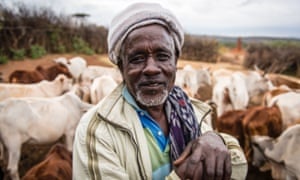What happens when it’s not just a lack of physical banks preventing communities’ access to financial services, but ethical issues too?

Islamic-compliant financial products can take several forms and business models. However, the principles of Islamic finance are universal: you cannot make money off money. No one can charge or pay interest, or invest in items that Islam forbids such as alcohol and gambling.
Although a growing industry globally, within Ethiopia Islamic banking, which is also referred to as interest-free banking, is in its infancy. Around a third of Ethiopians identify as Muslim, making the country’s Muslim population larger than that in Saudi Arabia, Syria or Yemen. Access to finance in Ethiopia is generally very low. Nationally, only 14 % of the adult population has access to formal credit and savings products but this rate drops to 1% in rural areas. And, until recently, there were no financial institutions catering to the large population requiring Islamic-compliant products.
In the past this was due to the lack of development in the country and consequently very few financial institutions. Banks and other institutions providing appropriate loan products just did not exist, interest-free or otherwise. But wherever you live, whatever your needs are, financial services must be tailored to your needs. For example, in the agricultural sector, farmers want to repay a loan with small payments until harvest when a balloon payment is made.
The idea of creating an infrastructure to support Islamic banking in Ethiopia has gained more support in recent years though, and in 2008, a proclamation by the National Bank of Ethiopia (NBE), Ethiopia’s financial regulator, introduced interest-free banking in Ethiopia, and then in 2011, issued formal directives on Islamic-compliant finance.
That same year Mercy Corps decided to focus a large portion of our work in Ethiopia on increasing interest-free financial services to the least-served areas of the country. These areas are in pastoral Ethiopia, which represents 60% of the country’s landmass and hold 40% of the country’s livestock, especially camels and cattle – a mainstay of the Ethiopian economy. Three of these regions – Afar, Somali and Oromia – are the country’s most dynamic, serving as economic and trade corridors to Kenya, Somalia and the Gulf.
With USAid support, we launched the Somali Microfinance Institution, the first provider of interest-free microfinance services in the country – offering loans, savings, and money transfers. The Somali MFI has now scaled up to have 16 branches and over 6,000 active clients. Rural Ethiopia has a 125,000:1 person-to bank-branchratio and there is also a need for financial services closer to home. This is a gap that mobile banking could fill, even though, compared to its neighbours, Ethiopia’s mobile phone penetration is low due to a government monopoly.
However, what’s most challenging about working in this area is that interest-free banking in Ethiopia is not progressing at the same pace as market demand. This is due to a lack of knowledge around regulations. Banks are unclear how to solve legal disputes that arise from interest-free finance, and there is a still a gap in knowledge about how to design appropriate products. We’re working to build the capacity of staff to design financial products and how to evaluate the market and, working with the Ethiopian government to establish an interest-free finance advisory board that will assist the industry to navigate regulations.
Even with the limited work that has already been done though, Ethiopia can really lead the way in the region to get policymakers on board. In October last year, Mercy Corps hosted senior-level Ethiopian regulators and commercial bank staff in the UK to demonstrate how UK financial institutions have integrated Islamic financial services into their conventional offerings. UK banks first introduced Islamic financial products in the early 1980s and it has grown to a £12bn sector.
The UK exposure visit was significant as it moved the National Bank of Ethiopia directive from theory to practice, ensuring Ethiopian banks understand interest-free finance compliant product design and the operational reality of opening an interest-free window (current legislation in Ethiopia does not allow for standalone Islamic banks). The visit included several days of training provided by the Islamic Finance Council UK, including discussions with scholars and lawyers; a visit to a high street bank providing Islamic financial services; a meeting withLord Sheik, the first Muslim peer and a strong supporter of financial inclusion; and in-depth operational discussions.
By bringing together a mixed group, there was a productive and forward-looking dialogue between Ethiopian bankers and regulators. The dialogue continued in Ethiopia through a November 2014 industry debrief event, where participants of the UK visit shared their experiences and answered questions from other Ethiopian bankers and regulators.
In Ethiopia, the challenge is now for the National Bank of Ethiopia to develop a comprehensive and transparent legal framework to grow confidence in this sector. Interest-free finance is here to stay and the more we can do to better understand and develop what already exists, as well as instil confidence in the industry, the more that we can provide financial services to those who have been previously excluded.
__________________________________________________
Karri Goeldner Byrne is chief of party at Pastoralists’ Areas Resilience Improvement through Market Expansion, Mercy Corps Ethiopia. Thea Anderson is a senior adviser on economic and market development at Mercy Corps. Follow their work on Twitter @MercyCorps_uk
(Source: The Guardian)




























